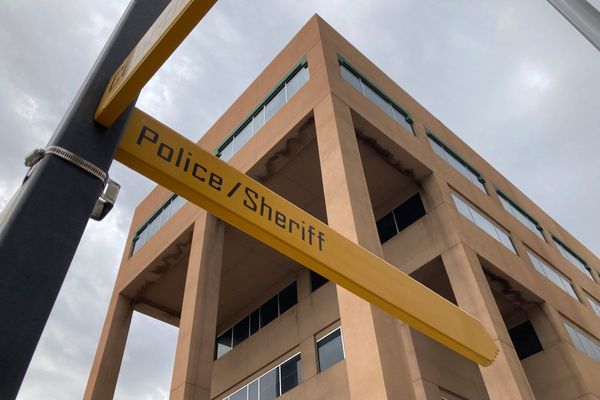
Rishi Sunak is approaching the end of the year with little to celebrate. Of the five priorities set by the prime minister in January, four are in a mess: the economy is shrinking, the national debt will only fall if you believe in tax and spending fantasy, NHS waiting lists remain sky-high, and “stopping the boats”, through the Rwanda policy, is both failing and blowing the Tories apart.
This week there will, however, be one crumb of comfort: from official figures expected to show another fall in inflation, from 4.6% in October to 4.4% in November; no doubt to be accompanied by a flurry of government fanfare taking credit that the pledge to halve inflation, from over 10% at the start of the year, has been met. But even here Sunak could find trouble.
While falling inflation will be welcomed by households and businesses who have been through the wringer, the prime minister ought to remember a basic rule of economics: lower inflation does not mean prices are coming down, only that they are rising less quickly.
Heading into winter, falling temperatures mean many households will need their heating even as bills remain expensive. From January, bills are going up again, with a 5% increase in the Ofgem price cap to an average of £1,928 a year for the typical gas and electricity bill – more than double the cap in the winter of 2020-21.
Food will remain expensive, even after a fall in the price of some essentials over recent months. Such is the scale of the problem that over the past two years, average prices are up by 20%. To put that in context, it had previously taken the whole decade up to the Covid pandemic to reach that much of an increase.
Sunak might not have too much else positive to talk about, but hammering on about lower inflation, when most people are still under significant pressure, risks making the prime minister sound even more out of touch than he already is.
As many as 7.3m low-income households are believed to have gone without essentials such as a warm home, food or toiletries between May and October, according to the Joseph Rowntree Foundation. Almost 6 million people are going hungry, or having to cut down on or skip meals.
Against this backdrop the government handed out more than £11bn in corporate tax breaks at last month’s autumn statement, paid for by an austerity drive due to kick in after the next general election. “That’s despite the public being more than twice as worried for the future of services than the level of tax on investment,” says Alfie Stirling, the poverty charity’s chief economist.
After years of cuts to benefits, a decade of stalling progress to raise average wages, and as public services crumble, many people will recognise 13 years of Conservative-led governments have done little for them. The inflation shock might be fading, but the cost of living crisis still has a long way to run. According to the Resolution Foundation, as things stand, household incomes will still take until at least 2027 to return to their pre-cost of living crisis peak.
As we prepare to enter 2024, the crisis is heading into a new phase. So far there have been three clearly identifiable waves: first came goods price inflation, after the easing of Covid lockdowns created bottlenecks in global supply chains. Next came Russia’s war in Ukraine, triggering an explosion in world energy prices, which drove up household gas and electricity bills. Then came the consequence of this shock rippling through food production, pushing up grocery prices at the fastest rate since the 1970s.
Now we have the big jump in mortgage costs – largely driven by the Bank of England’s interest rate increases in response to the inflation shock. Millions are expected to reach the end of cheaper fixed-rate mortgages next year, with monthly repayments for an average homeowner to increase by about £240, a jump of about 39%. Rental costs, meanwhile, are rising at the fastest rate on record.
Last week, there were early signs of the impact in the annual English housing survey released by the government, showing the proportion of mortgage borrowers finding it difficult to afford repayments jumped from 7% last year to 11% this year. More than a quarter of private and social renters were also in difficulty.
The next phase will hurt some groups in society more than others. The Resolution Foundation says young adults are more likely to be exposed, because older workers are far more likely to own their home outright.
Between July and October this year, only a quarter of 55- to 64-year-olds saw their housing costs go up, compared with two-fifths of adults under 55.
Heading into a general election, it would be foolish for any political party to sweep these concerns under the carpet. Britain has long had a dysfunctional housing market and whoever sounds likeliest to tackle it ought to do well with voters. But it won’t be easy to fix. It will require policies not only to boost the supply of high-quality, private and social homes for rent and purchase, but also to tackle some of the structural reasons why housing affordability is such a big problem; including weak wage growth and heightened inequality.
The cost of living challenges facing households will not disappear with inflation falling back. After more than a decade of Conservative government, this ought to spell trouble for Sunak should voters consider Ronald Reagan’s rhetorical question from the 1980 US presidential election campaign: “Are you better off?”







